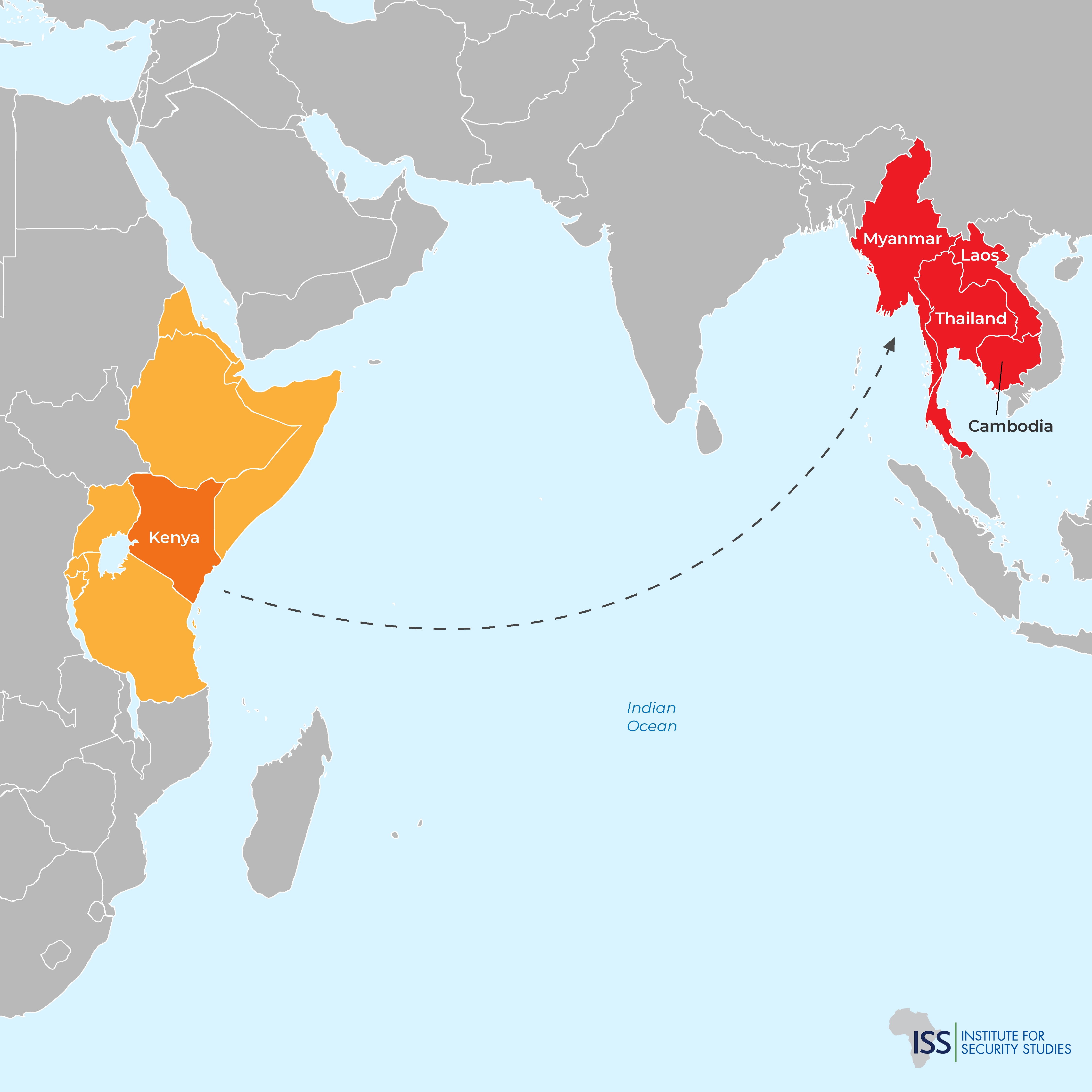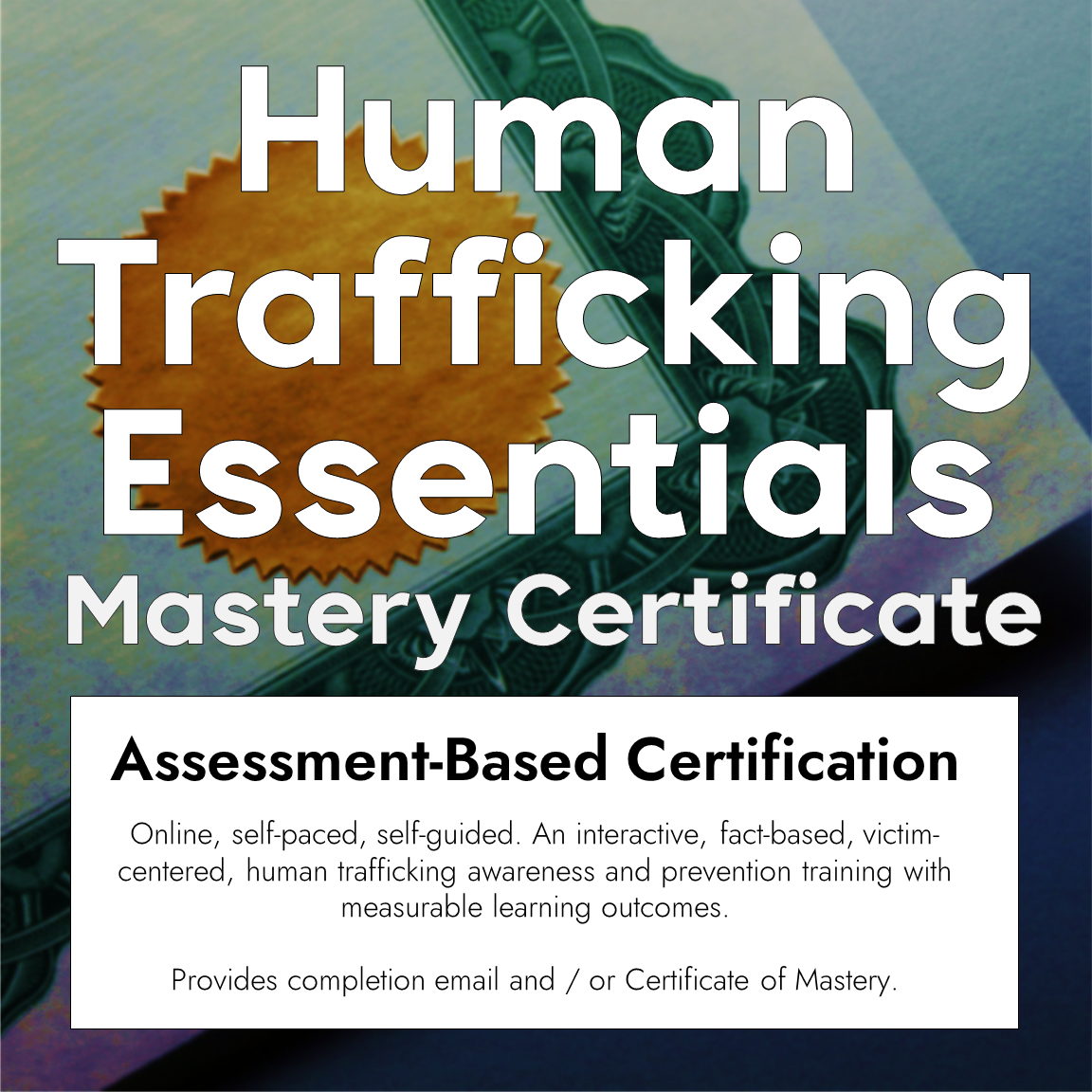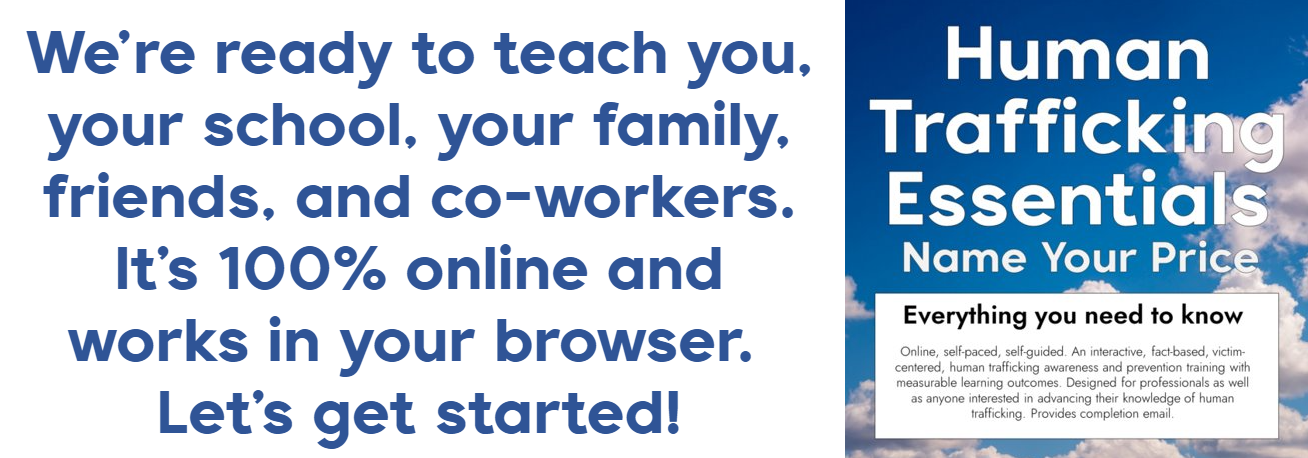Fake overseas job recruitment scams lead to human trafficking traps for East Africa youth
On 23 May, Kenya's Directorate of Criminal Investigations (DCI) issued an arrest warrant for Wycliffe Onguti Magara. Magara had been identified as the head of a local human trafficking network that recruits East Africans online with the promise of job opportunities in Southeast Asia. But once they arrive, victims are forced to work for cybercrime gangs and prostitution rings in countries such as Laos, Cambodia, Thailand and Myanmar.
According to The EastAfrican, an increasing number of citizens from the region are being lured through online job scams in Southeast Asia that promise to pay well. For example, a ‘sales specialist' is said to earn $2,098 a month, while a bilingual translator could make up to $3,000.
These job opportunities abroad are particularly appealing to youth in East Africa, where recent studies show that up to 80% are unemployed, and the average monthly salary is around $634 a month.

Human trafficking route from East Africa to Southeast Asia. (Source: Enact, supplied by ISS Today)
Conning young people is a growing and profitable business. The DCI established that Magara's network received up to $2,791 from each victim as ‘applicant processing', ‘agency' and tourist visa fees to facilitate their travel to Southeast Asia. His foreign contacts paid him and his accomplices up to $1,395 for every successful victim recruitment and transfer.
Trafficked victims
Damaris Akumu and Marleen Nduta Gitau were tricked into being trafficked from Kenya to Myanmar on 4 August 2022. They were recruited for teaching and front-office jobs and added to a WhatsApp group controlled by Kenyan, Chinese or Thai administrators. They each paid up to $2,000 for air tickets and airport transfers.
After a night in Bangkok's Mae Sot Hotel, they were taken, together with other victims, in pick-up trucks across the Thaungyin River to Myanmar and handed over to insurgent groups in Kachin State. Once there, they were ordered to download images of women on social media and pretend to be these women to lure men into online sexual exploitation.
In September 2022, Kenya's government, together with the International Organization for Migration — Kenya, Awareness Against Human Trafficking (Haart Kenya) and the Laos government, repatriated 24 victims of trafficking from Myanmar. Most were women under 30 years old from Kenya, Burundi and Uganda.
In June 2023, Interpol issued a global warning on the increased activities of human trafficking networks fuelled by fraud. In particular, it noted an escalation in human trafficking networks using online job scams to lure victims who are then “forced to commit cybercrime-enabled financial crimes on an industrial scale”.
Interpol further advised about the threat of a double-edged crime. After being conned by the false promise of job opportunities, victims are made to undertake online scams, forced labour and prostitution in Cambodia, Thailand, Laos and the Philippines.
The Global Alliance Against Traffic in Women has also noted the increase of East African victims in Southeast Asia. It said that on arrival at the border and airports, victims are often driven to deserted hotels where they are forced to work in ‘fraud factories', conducting love scams, money laundering and illegal gambling. Those who try to leave are often forced to pay back a debt as high as $10,000.
Tackling the trend
Curbing fake online recruitments used to lure desperate and unemployed youth from East Africa requires collaboration between governments and social media companies to identify bogus job adverts and stop them from being published.
In a report of the Working Group on Trafficking in Persons, the United Nations Convention Against Transnational Organized Crime recommended that technology companies embrace more robust scanning practices to detect cons that lead to human trafficking online. Google and Meta recently joined Tech Against Trafficking, a coalition of technology companies and global experts that supports and accelerates the impact of technology solutions in combating human trafficking.
It is also important that vulnerable groups are made aware of these scams and protected from the consequences. In this case, the target group for Southeast Asia traffickers is educated youth desperate for employment. Priority must be given to enforcing anti-trafficking laws to prosecute alleged East African and Southeast Asian offenders.
Global partnerships are also needed to protect East Africa's youth from the new realities of this double-edged crime threat. The efforts to repatriate trafficking victims required collaboration between Southeast Asian countries, the Kenyan Embassy in Thailand and local anti-trafficking civil society groups such as Haart Kenya. DM
Willis Okumu, Senior Researcher, East Africa, Enact, Institute for Security Studies (ISS) Nairobi.
Enact is funded by the European Union and implemented by the Institute for Security Studies in partnership with Interpol and the Global Initiative against Transnational Organized Crime.
First published by ISS Today.
This “Eyes on Trafficking” story is reprinted from its original online location.
Fair Use Notice: The PBJ Learning Knowledge Vault is dedicated to advancing understanding of various social justice issues, including human trafficking and related topics. Some of the material presented on this website may contain copyrighted material, the use of which has not always been specifically authorized by the copyright owner. We are making such material available in our efforts to promote education and awareness of these important issues. There is no other central database we are aware of, so we put this together for both historical and research purposes. Articles are categorized and tagged for ease of use. We believe that this constitutes a ‘fair use' of any such copyrighted material as provided for in section 107 of the US Copyright Law. In accordance with Title 17 U.S.C. Section 107, the material on this site is distributed without profit to those who have expressed a prior interest in receiving the included information for research and educational purposes. For more information on fair use, please visit: “17 U.S. Code § 107 – Limitations on exclusive rights” on Cornell Law School's Legal Information Institute.

ABOUT PBJ LEARNING
PBJ Learning is a leading provider of online human trafficking training, focusing on awareness and prevention education. Their interactive Human Trafficking Essentials online course is used worldwide to educate professionals and individuals how to recognize human trafficking and how to respond to potential victims. Learn on any web browser (even your mobile phone) at any time.
More stories like this can be found in your PBJ Learning Knowledge Vault.
EYES ON TRAFFICKING
This “Eyes on Trafficking” story is reprinted from its original online location.
Fair Use Notice: The PBJ Learning Knowledge Vault is dedicated to advancing understanding of various social justice issues, including human trafficking and related topics. Some of the material presented on this website may contain copyrighted material, the use of which has not always been specifically authorized by the copyright owner. We are making such material available in our efforts to promote education and awareness of these important issues. There is no other central database we are aware of, so we put this together for both historical and research purposes. Articles are categorized and tagged for ease of use. We believe that this constitutes a ‘fair use' of any such copyrighted material as provided for in section 107 of the US Copyright Law. In accordance with Title 17 U.S.C. Section 107, the material on this site is distributed without profit to those who have expressed a prior interest in receiving the included information for research and educational purposes. For more information on fair use, please visit: “17 U.S. Code § 107 – Limitations on exclusive rights” on Cornell Law School's Legal Information Institute.
ABOUT PBJ LEARNING
PBJ Learning is a leading provider of online human trafficking training, focusing on awareness and prevention education. Their interactive Human Trafficking Essentials online course is used worldwide to educate professionals and individuals how to recognize human trafficking and how to respond to potential victims. Learn on any web browser (even your mobile phone) at any time.
More stories like this can be found in your PBJ Learning Knowledge Vault.

